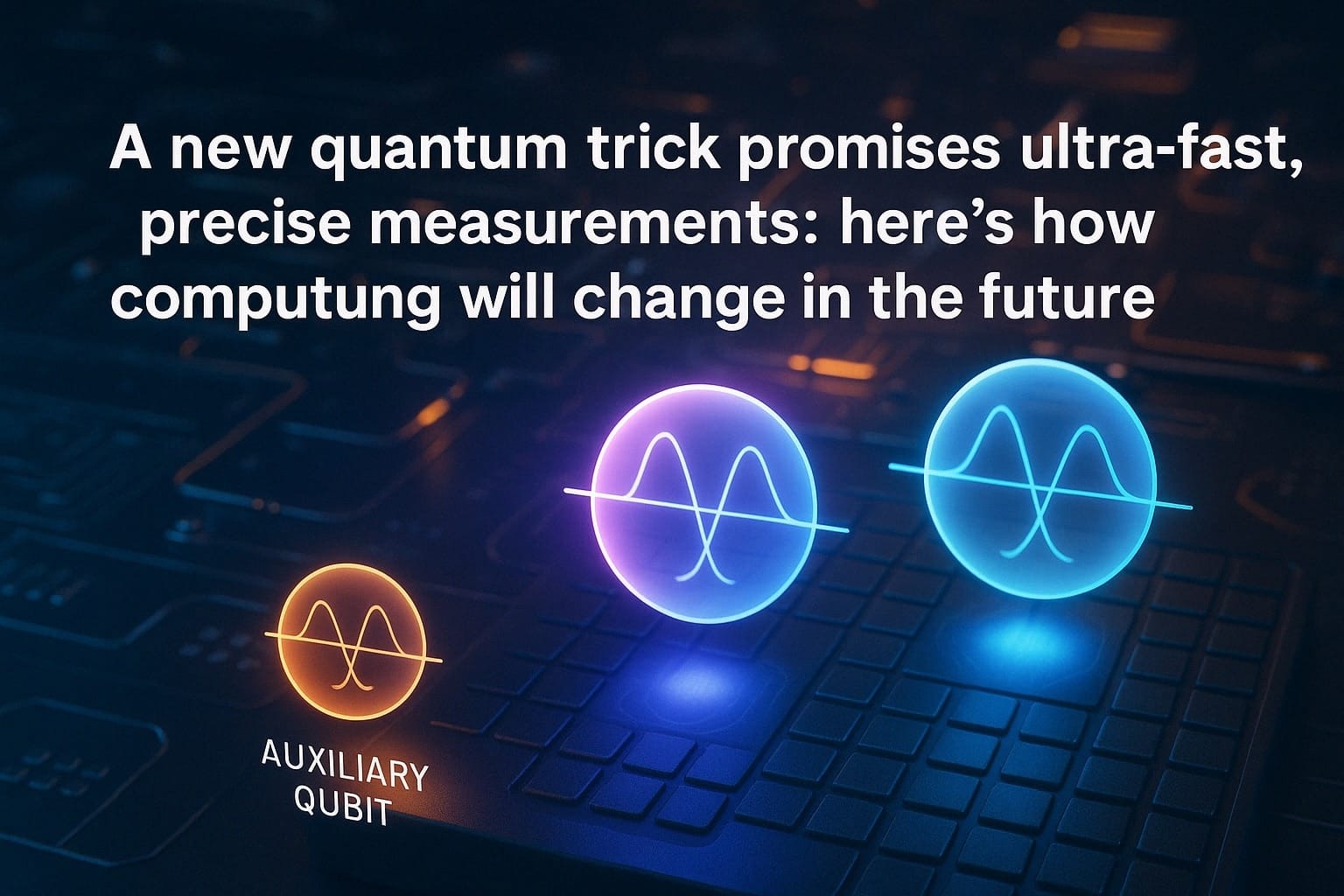A team of researchers from the University of Bristol has achieved what seemed impossible for years: accelerating quantum measurements without losing precision, as reported in interesting engineering. This advancement, which may seem technical, represents a key step toward the development of faster quantum computers, more accurate sensors, and unhackable communication technologies.
The Quantum Dilemma: Speed vs. Accuracy
In the quantum world, measuring a system is a significant challenge. Scientists often have to choose between doing it quickly—at the cost of accuracy—or doing it correctly by taking more time. This limitation has been a real obstacle in the race to build practical quantum computers.
However, a new method based on a principle of “space-time trading” promises to resolve this tension. The key? Utilizing "ancillary qubits," small quantum units that act as assistants during measurement.
What is an Ancillary Qubit and Why Does it Matter?
To understand this advancement, let’s consider how a quantum computer functions. Unlike classical bits, which can be either 0 or 1, qubits can be in both states simultaneously, known as superposition. This allows them to process information much more powerfully.
To read a qubit’s state accurately, scientists often need time. The trick of the Bristol team is to add an extra qubit, which enables them to gather more information within the same time interval.
Chris Corlett, the study’s lead author, explains it with a simple metaphor: “It’s like comparing two glasses with 20 and 25 milliliters of water. If you look at them for only one second, you won’t know which has more. But if you increase the difference—say, 40 and 50 milliliters—you can see the contrast in the same time.” That’s precisely what ancillary qubits do: they amplify the difference so it can be detected more quickly.
Real-World Applications: Sensors, Communication, and More
This technique isn’t just theoretical. Scientists believe it can be applied to multiple current quantum platforms, including cold-atom, trapped-ion, or superconducting quantum computers.
The potential applications are impressive:
Quantum Sensors: for navigation, medical imaging, or subsurface exploration, which require ultra-fast and precise measurements.
Secure Communications: where every second counts for transmitting data with complete privacy.
- Quantum Computing: speeding up processes without introducing additional errors.
A Step Towards the Technological Maturity of the Quantum Realm
The study, published in the journal Physical Review Letters, represents a fundamental advance toward the maturity of quantum computing. It achieves this without needing to build more complex machines, but rather with an intelligent solution based on reorganizing existing resources.
This type of research is crucial at a time when governments and companies are investing billions into quantum technologies. The European Union, for example, has launched strategic programs to ensure its leadership in this race.
The Immediate Future
With these kinds of solutions, we are closer to seeing operational quantum computers in laboratories, data centers, or even in key industries such as pharmaceuticals, automotive, or energy.
But it also serves as a reminder that progress doesn’t always require vast resources. Sometimes, as in this case, all it takes is to look at the problem from a different angle and add a small extra qubit to change everything.

